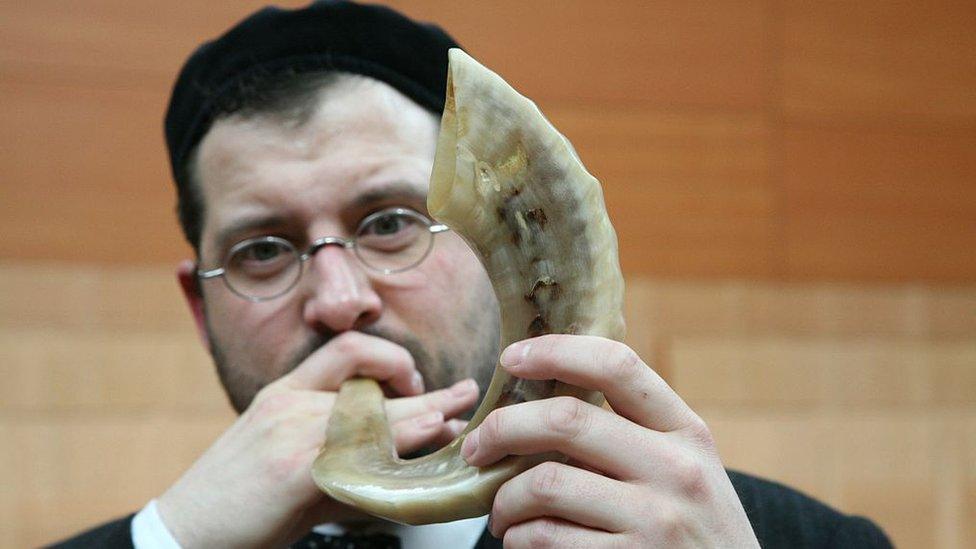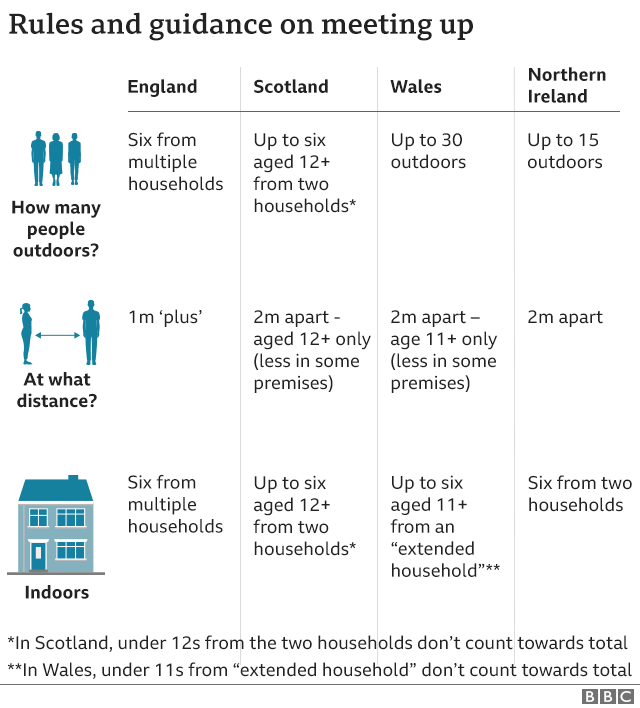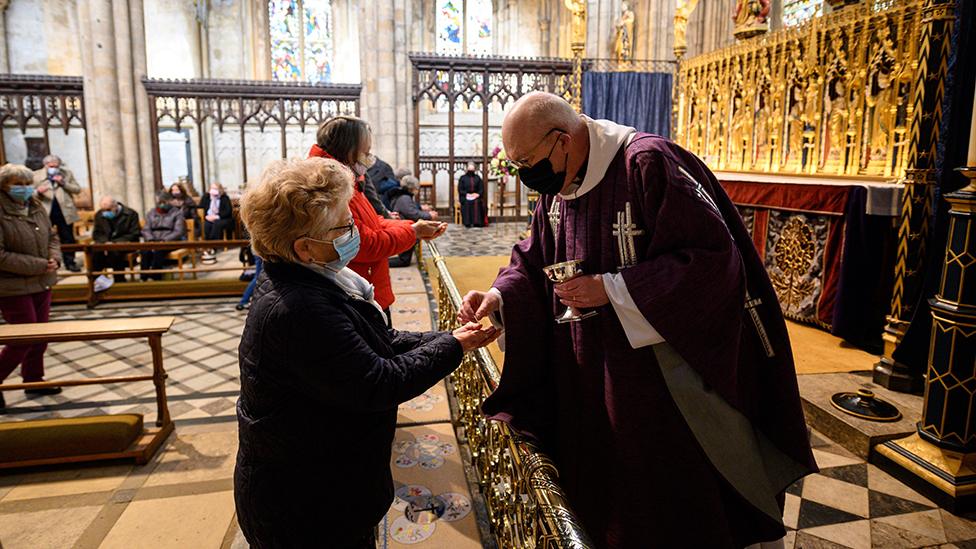Coronavirus: Safety guidance issued for Jewish festivals
- Published

Blowing a ram's horn is a key feature of Rosh Hashanah - but extra care must be taken this year
The government has issued highly detailed dos and don'ts for the UK Jewish community as it celebrates its most important festivals of the year.
Rosh Hashanah, Yom Kippur and Sukkot normally involve packed synagogues and large family gatherings.
This year, synagogues will have to ensure social distancing and avoid communal prayer shawls and books.
The person blowing the shofar (ram's horn) for Rosh Hashanah should keep 2m from other worshippers.
Beginning on Friday, the three-week period known as the Days of Awe is the central feature of the Jewish religious year, but many of its traditions will be impossible this year.
A long checklist, external makes clear that synagogues can be used as long as Covid secure measures are in place.
But communal prayer books and prayer shawls, normally strewn around the synagogue, must be removed with worshippers told to bring their own prayer books.
Microphones should be used where possible, though these would normally be unacceptable in orthodox synagogues.
Mask-wearing is advised, and people should not mix in groups of more than six in line with the new limits on social gatherings.

SOCIAL DISTANCING: What are the rules now?
LOOK-UP TOOL: How many cases in your area?
YOUR QUESTIONS: We answer your queries

The guidance acknowledges that the "rule of six" will have a particular impact on the tradition of hospitality around Sukkot - the Feast of Tabernacles, which marks the end of harvest and commemorates the Exodus from Egypt.
Running from 2 October to 9 October this year, the festival normally involves constructing "sukkah" the little shelter many Jews build in their gardens to eat in during the eight-day Succot festival.
Normally guests would be invited and crammed inside, but now the limit is six people - unless the social bubble is bigger than that.


Sharing food or cutlery is out, as are social gatherings in a communal sukkah and "sukkah crawls" across the community.
A central feature of Rosh Hashanah - the Jewish New Year - is the blowing of the shofar, a musical instrument made from a ram's horn that may present a risk for a virus spread through droplets.
To reduce the risk, the guidance says the shofar blower must be at least 2m from anyone else, and it should not be blown towards anyone.
There is also detailed guidance for a ceremony known as Tashlich, where on Rosh Hashanah worshippers go to a body of moving water like a river and figuratively throw away their sins.
Losing a ‘beacon of light’ of the UK’s ultra-Orthodox community to coronavirus
As well as the rule of six and social distancing, the guidance says items used during the ceremony should not be shared, such as prayer books or the breadcrumbs that some worshippers cast on the water.
Meanwhile, the Prince of Wales has been appointed patron of a Jewish youth organisation as it celebrates in 125th year.
Neil Martin, chief executive of the JLGB (Jewish Lads' and Girls' Brigade), said it is an "absolute honour" and praised the prince as "a tremendous believer in the power of young people".
- Published24 June 2020

- Published12 April 2021

- Published20 May 2020
